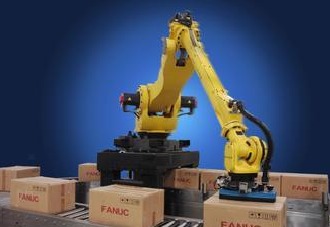 The World Federation of Artificial Intelligence International Conference is known as the “Olympiad†of artificial intelligence science. According to relevant media reports, the 23rd International Joint Conference on Artificial Intelligence (IJCAI-13) will be held in Beijing from August 3rd to August 9th this year. This is the first time that the conference has been settled in China since its inception in 1969. Analysts said that the convening of the AI ​​International Conference will undoubtedly provide speculation opportunities for popular robot concepts. Coupled with the rapid development of the domestic robotics industry, it is expected to become the world’s largest robot market in the next two years.
The World Federation of Artificial Intelligence International Conference is known as the “Olympiad†of artificial intelligence science. According to relevant media reports, the 23rd International Joint Conference on Artificial Intelligence (IJCAI-13) will be held in Beijing from August 3rd to August 9th this year. This is the first time that the conference has been settled in China since its inception in 1969. Analysts said that the convening of the AI ​​International Conference will undoubtedly provide speculation opportunities for popular robot concepts. Coupled with the rapid development of the domestic robotics industry, it is expected to become the world’s largest robot market in the next two years. With the rising cost of labor, packaging robots, as a new type of labor force, are quietly changing the manufacturing paradigm. The current human-oriented production model will gradually be replaced by a robot-dominated model, which is increasingly attracting the attention of food industry companies with its high labor rate and low cost advantages.
The automation of production and living is the major trend of future development. It is not difficult to understand that the intelligent automation concept represented by robots is sought after by the fanaticism of the market. The use density of packaging robots in China is still relatively low, and future upgrades will accelerate the growth of robot demand. However, we must also see the fact that China still relies heavily on imports in some key core technology areas.
At the same time, the government's policy support is also synchronizing. The forthcoming "Guidance on Promoting the Development of Industrial Robot Industry" aims at the weak points in some key sectors of the industry in China, and provides financial support for the development of robots and related parts and components. Therefore, the development of some precision machinery parts will become the focus of government policy support in the future, and enterprises that master these core technologies will also benefit.
Invited experts from China Food Machinery Equipment Network believe that the domestic packaging robot industry has entered a golden period of development. As a surprise "by-product" brought about by the rapid increase in labor costs and the adjustment of industrial structure, the replacement of artificial labor by robots has become a catalyst for the rapid development of the industry, and has accelerated the economic turning point of the packaging industry. Although China is still in its infancy, the future development space is immense.
Bill Gates once asserted that robotics and automation technology will "dominate" the world in the future, and this reality is accelerating. At present, China is the fastest growing market in the global robotics industry. The data shows that in 2012 China's industrial robot sales reached 27,000 units. Although lagging behind Japan, the forecast data shows that high domestic growth will make China surpass Japan in two years and become the world's largest industrial robot market, and the application of packaging robots in the food industry will increase significantly.
Hebei Funna I&E Co.,Ltd , https://www.topconveyorrollers.com